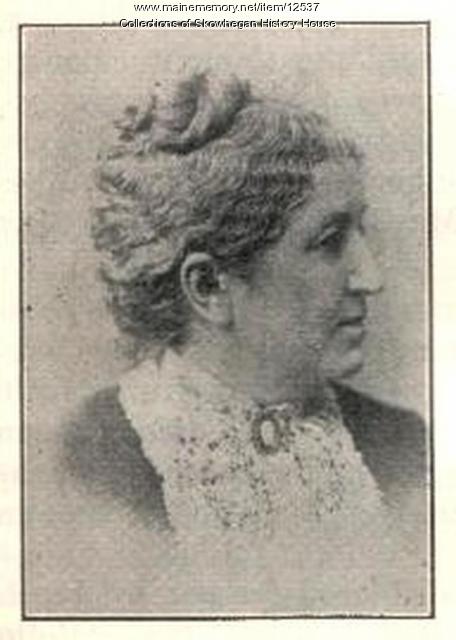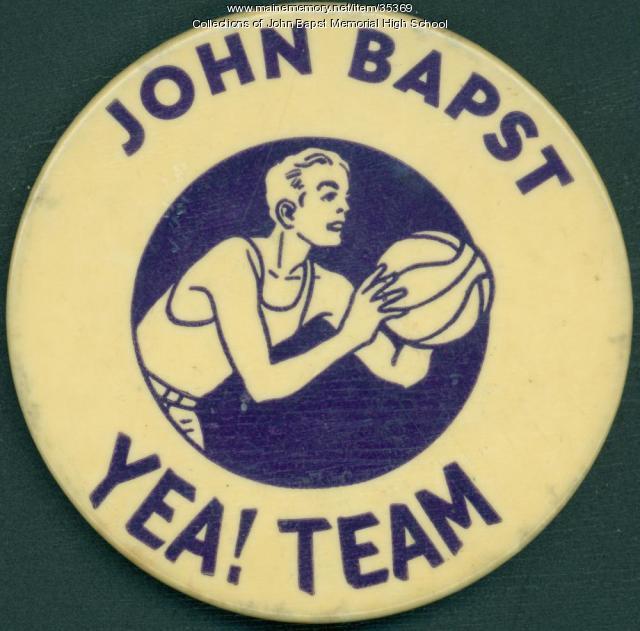Keywords: Beautiful
- Historical Items (225)
- Tax Records (1)
- Architecture & Landscape (2)
- Online Exhibits (65)
- Site Pages (87)
- My Maine Stories (29)
- Lesson Plans (1)
Online Exhibits
Your results include these online exhibits. You also can view all of the site's exhibits, view a timeline of selected events in Maine History, and learn how to create your own exhibit. See featured exhibits or create your own exhibit
Exhibit
Student Exhibit: Historic Buildings on Madison Ave in Skowhegan
Take a tour and see some of the beautiful old buildings that used to be on Madison Avenue, Skowhegan? A few still remain, but most have been torn down.
Exhibit
Poland Spring: Summering in Fashion
During the Gilded Age at the end of the nineteenth century, Americans sought to leave increasing urban, industrialized lives for the health and relaxation of the country. The Poland Spring resort, which offered a beautiful setting, healing waters, and many amenities, was one popular destination.
Exhibit
For one hundred years, Acadia National Park has captured the American imagination and stood as the most recognizable symbol of Maine’s important natural history and identity. This exhibit highlights Maine Memory content relating to Acadia and Mount Desert Island.
Exhibit
Dressing Up, Standing Out, Fitting In
Adorning oneself to look one's "best" has varied over time, gender, economic class, and by event. Adornments suggest one's sense of identity and one's intent to stand out or fit in.
Exhibit
Northern Threads: Penobscot mocassins
A themed exhibit vignette within "Northern Threads, Part I," about telling stories through Indigenous clothing, featuring an essay by Jennifer Sapiel Neptune (Penobscot.)
Exhibit
Student Exhibit: Save the Skowhegan Grange & Granges in General
A brief history of the Grange in Skowhegan, its importance to community history, and a plea to save it from destruction.
Exhibit
Music in Maine - Music in Maine
"… forms of storytelling and expressions of beauty and emotions through sound. Music reflects the diversity of cultures, influences of historical…"
Exhibit
Promoting Rockland Through a Stereopticon, 1875
Frank Crockett and photographer J.P. Armbrust took stereo views of Rockland's downtown, industry, and notable homes in the 1870s as a way to promote tourism to the town.
Exhibit
A Portland newspaper wrote about an ice storm of January 28, 1886 saying, "The city of Portland was visited yesterday by the most inconvenient storm of the season."
Exhibit
Student Exhibit: Rebecca Sophie Clarke
Sophie May, whose real name was Rebecca Clarke, was the author of over 40 books between 1861 and 1903. She wrote the "Little Prudy Series" based on the little town of Norridgewock.
Exhibit
Named for the two largest things in Maine at the turn of the 20th century, Mt. Katahdin and Granger of Stetson, were known as the Largest Oxen in the World. Unable to do farm work because of their size, they visited fairs and agricultural events around the Northeast.
Exhibit
The Waldo-Hancock Bridge is in the process of being dismantled after over 70 years of service. The Maine State Archives has a number of records related to the history of this famous bridge that are presented in this exhibition.
Exhibit
Music in Maine - Community and School Marching Bands
"… "Deering felt the duty to own A flag, not for its beauty alone, She took a color that her aim And noble purpose bid her claim..." Goldthwaite wrote…"
Exhibit
Maine has some 17 million acres of forest land. But even on a smaller, more local scale, trees have been an important part of the landscape. In many communities, tree-lined commercial and residential streets are a dominant feature of photographs of the communities.
Exhibit
The West Baldwin Methodist Church, founded in 1826, was one of three original churches in Baldwin. While its location has remained the same, the church has undergone numerous changes to serve the changing community.
Exhibit
A Celebration of Skilled Artisans
The Maine Charitable Mechanic Association, an organization formed to promote and support skilled craftsmen, celebrated civic pride and members' trades with a parade through Portland on Oct. 8, 1841 at which they displayed 17 painted linen banners with graphic and textual representations of the artisans' skills.
Exhibit
Visitors to the Maine woods in the early twentieth century often recorded their adventures in private diaries or journals and in photographs. Their remembrances of canoeing, camping, hunting and fishing helped equate Maine with wilderness.
Exhibit
Hermann Kotzschmar: Portland's Musical Genius
During the second half of the 19th century, "Hermann Kotzschmar" was a familiar household name in Portland. He spent 59 years in his adopted city as a teacher, choral conductor, concert artist, and church organist.
Exhibit
Horace W. Shaylor: Portland Penman
Horace W. Shaylor, a native of Ohio, settled in Portland and turned his focus to handwriting, developing several unique books of handwriting instruction. He also was a talented artist.
Exhibit
Maine's natural resources -- granite, limestone and slate in particular -- along with its excellent ports made it a leader in mining and production of the valuable building materials. Stone work also attracted numerous skilled immigrants.
Exhibit
Like other immigrant groups, Jews came to Maine to make a living and enjoy the natural and cultural environment. Their experiences have been shaped by their occupational choices, Jewish values and, until recently, experiences of anti-Semitism.
Exhibit
Evergreens and a Jolly Old Elf
Santa Claus and evergreens have been common December additions to homes, schools, businesses, and other public places to America since the mid nineteenth century. They are two symbols of the Christian holiday of Christmas whose origins are unrelated to the religious meaning of the day.
Exhibit
Student Exhibit: Can You Help Our Free Skowhegan Public Library?
The Skowhegan Free Public Library was built in 1889 with money donated by Abner Coburn and the town of Skowhegan. Mr. Coburn left $30,000 in his will towards the building of the library. In 2005, for the library to fully keep up with their programs need to make some renovations. These changes would allow for more use of technology, more room for children's programs, and provide handicap accessibility.
Exhibit
John Bapst High School was dedicated in September 1928 to meet the expanding needs of Roman Catholic education in the Bangor area. The co-educational school operated until 1980, when the diocese closed it due to decreasing enrollment. Since then, it has been a private school known as John Bapst Memorial High School.
























